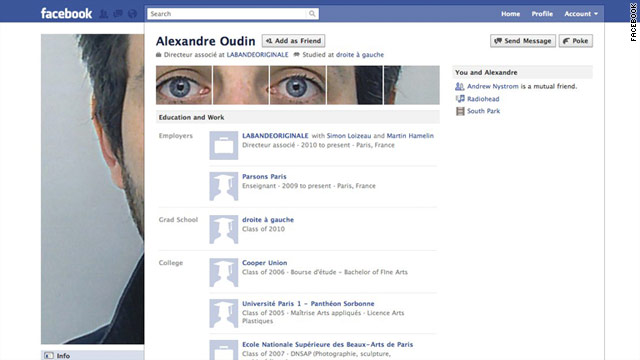Many students and I would argue that yes, distributed or non-distributed denial-of-service attacks are a legitimate form of protest.
The British media has been inundated with news of student protests erupting after the government voted to treble tuition fees for new students starting in the 2012 academic year. Though all media from around the world have focused also on the Wikileaks scandal, which continues to put pressure on governments and their efforts around the world.
The two can overlap. The problem is that most students and political activists of my age are unaware of this mechanism of airing our disdain.

A distributed denial-of-service attack is when hundreds or thousands of people at one time use an application to target their own broadband bandwidth to pummel a certain server, often a web server hosting a website, to overload it with information causing it to shut down.
In practice, you download a small application, follow the instructions made available by means of viral marketing spreading and you ping; you ping until your heart’s content.
- Read more: MPAA down, RIAA next: An e-protest over piracy
- Read more: The Global Cyber War Hacks and Attacks Scorecard
- Related: DDoS: How to take down WikiLeaks, MasterCard
- Related: Poll: What’s your take on Wikileaks?
I am neither condoning nor supporting the use of denial-of-service attacks, but one has to wonder whether the evolution and the speed of the Web has placed certain priorities higher than others when resorting to means of protest.
In a recent poll undertaken by the Between the Lines bloggers, though results are still coming in and polls are yet to change, at the time of publication most do not believe denial-of-service attacks are a legitimate form of protest. I think the readers are wrong.

So let’s just run through some basic pro’s and con’s to see if you can be persuaded otherwise:
Reasons for:
- In some places, protesting is illegal without a court order or police authorisation;
- It takes less people to actually ‘protest’ depending on the size of the target you are hitting;
- Street protests are often not listened to: politicians though accountable to the electorate often do as their party whips decide;
- Street protests do sometimes turn into violence, bringing the entire protest into disrepute.
- When operated virally, they are incredibly easy to organise and are ’simpler’, essentially.
Reasons against:
- It’s may be illegal in your country;
- In some cases it’s too easy to perform a DDoS attack against a small victim, and the numbers do not justify the wider feeling;
- Street protests give a greater accurate portrayal of the angeragainst a particular issue;
- Websites are often very resilient and can be up again as soon as the denial-of-service attack stops.
- A lot of students don’t have very fast broadband, and communal living makes bandwidth hungry students angry.
Whether or not you consider it to be a legitimate form of protest, suited for the twenty-first century, it still makes one hell of a noise.
Do you consider DDoS’ing a legitimate form of protest?
Kick off your day with ZDNet's daily e-mail newsletter. It's the freshest tech news and opinion, served hot. Get it.







